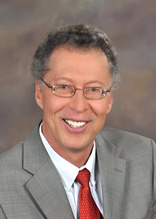Infrastructure includes roads, bridges, dams, and water and sewer systems. Infrastructure ain’t sexy. Managing infrastructure does not give a politician much television coverage or publicity. It is not a favorite subject of political leaders. I looked at the most recent South Dakota governor’s inaugural address and at State of the State addresses going back several years. None mentioned infrastructure. Mistakenly, political leaders do not think they can create their “Legacy” by fixing or improving infrastructure. That is a mistake for all concerned.
While South Dakota ranks relatively high by the conservative and libertarian Reason Foundation for its cost effectiveness in highway management. This ranking does not cure the long-term problem the state faces with its infrastructure. The same Research Foundation indicates that over 23% of the state’s bridges are in deficient condition. And the South Dakota Legislative Research Council (LRC) in a 2010 report stated that with no changes in revenues by the year 2020 19% of state highways would be in poor condition. The independent American Society of Civil Engineers submitted a 2017 report which stated that over 18% of the state’s bridges were structurally deficient, and that 13% of the state roads were in poor condition. South Dakota officials do not have a repair estimate for the number of high-hazard dams in need of repair. They should. Dams are an infrastructure safety issue because spillway capacities may change, because downstream development by man is always ongoing, and because the structure of a dam naturally deteriorates with time.
Infrastructure maintenance and improvements are not subjects political leaders take on as a personal favorite. In recent years society and perhaps some politicians have recognized the fact that infrastructure is vital to economic growth. But that alone does not give the issue political and legislative traction. Infrastructure is not an interesting topic for the media. Importantly, it is not a headline-grabbing topic for politicians. The issue is too mundane; the public and politicians see headline issues including hemp and transgender bathrooms as more important.
In Ohio Republican Governor Mike Devine’s state of the state address for 2019 he called infrastructure the unfinished business of the country. Governor Devine stated that it was his job to put before the people a description of unfinished business. In his annual address he advised, “Let me start with our roads and bridges. We have neglected them too long and we know face a crisis today that must be addressed immediately.”
In a 2010 report the South Dakota LRC stated the obvious and reported that good highways are needed to get farm and ranch products to market and to promote economic development in rural and urban areas of the state. The report also told the legislature that the, “Lack of adequate highway funding is causing deteriorating highway conditions and increasing highway maintenance costs.” If one doubts that truism, I suggest you talk to any township supervisor or county commissioner in the state; they will enlighten the reader very quickly on the infrastructure problem. According to a road industry organization’s (TRIP) 2015 white paper, which gathered information from state township reports, twenty-eight percent of township-maintained roads in South Dakota are either closed or in poor condition.
What should be repaired? What rebuilt? Where is the state public policy statement with a priority-of-projects list for all to review? This is too urgent a problem to be buried in some legislative committee report viewed only be a few, with little public input and without any long term attention given to the issue by those holding the bully pulpit.
David Ganje of Ganje Law Offices practices in the area of natural resources, environmental and commercial law





